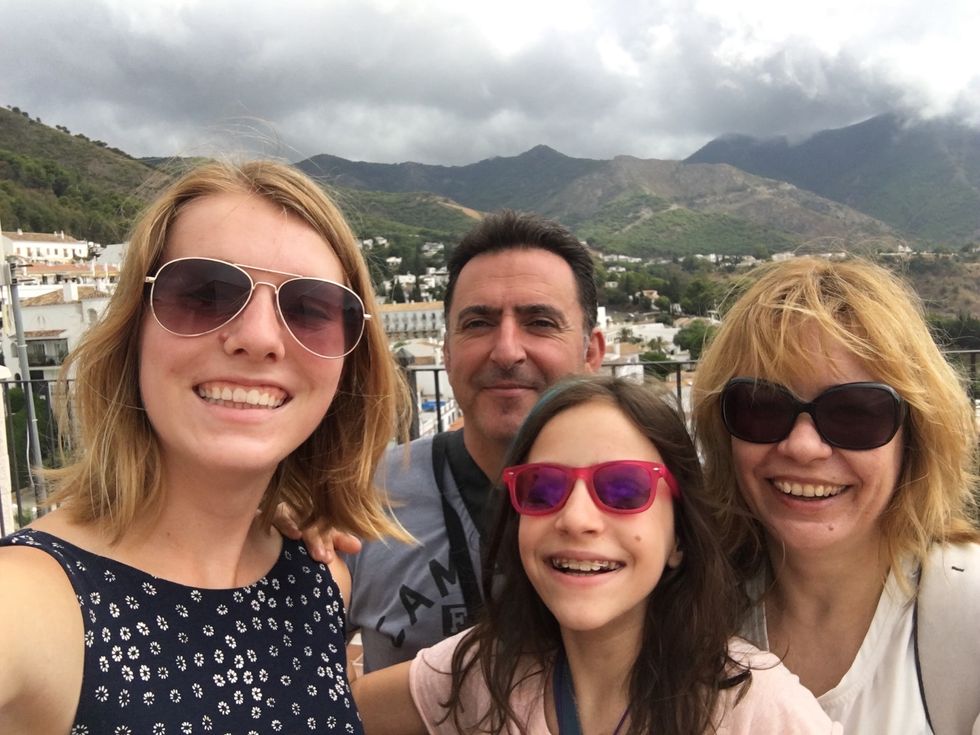From Toledo, Spain to London, England, I have had the amazing opportunity to study abroad for a quarter (two out of eight semesters) of my college education. I went into each abroad experience with a completely different set of goals, and I came out with unique lessons and learnings from both. This may be cliche, but studying abroad truly changed my life. I came back from studying abroad as a different person, and I guarantee you will too.
Here are five pieces of genuine advice and encouragement for all my fellow study abroaders out there getting ready to embark on your adventure of a lifetime:
1. Go in with an open-mind, and fewer expectations.
Living in a new country with a new culture for an extended period of time will challenge and change you in ways you cannot predict beforehand. Trying to perfectly plan exactly what you will do and how your experience will be, in my opinion, is not worth your time. Rather, spend your time thinking about specific personal and professional goals that you would want to get out of your experience, without trying to scheme how you are going to react to each situation.
2. Live with a host family.
This is the one way you can ensure that you are integrating yourself into the culture and language every day.
I understand that some study abroaders are fearful of getting a bad host family. In this way, I guess it is kind of like freshman year roommate assignments all over again. But like freshman year with a bad roommate, if you are unhappy with your host family, your program should help you get out of that situation.
Most if not all host families are amazing, and I guarantee it will be worth the chance and leap of faith. Living with my host family was the most challenging, yet most fun and rewarding part of my Spain experience. I now have a second family across the globe, and that’s pretty cool. I still stay in contact with them to this day and have already gone back to visit them!
3. “Just give it 10 days.”
Studying abroad may be one of the most difficult things you have decided to do thus far in your lifetime. During the first couple of days into my Spain experience, I was in the car with my host dad who could tell I was struggling. He said something to me that really helped me in the moment and something I still look back on to this day. He said, “just give it 10 days.”
10 days for me was all it took for my Spanish-speaking skills and confidence to increase to allow me to communicate just a little bit more, and for me not to feel totally terrified. Maybe for you, it will be seven days, three weeks or even a month. The lesson here is, just give it some time. It will be hard at first.
4. Do an internship.
Many study abroad programs have an internship option, and if yours does, I strongly recommend looking into it.
I believe you learn most about a country’s culture through the people, and working a job will allow you to interact with the people living in your host country and experience their work culture. My internship abroad in London was the highlight of my entire experience, as it gave me the opportunity to learn and interact with British workplace culture and meet some really great people. Plus, having an internship abroad will allow you to bring back tangible, real-world work experience to add to your résumé.
5. When it's over, use your experience.
According to NAFTA, only 1.6% of all U.S. students enrolled at institutions of higher education studied abroad for credit during 2015-2016. Contrary to your social media feed, which may look like all your friends are traveling the globe, the majority of college students, unfortunately, don’t get the chance to study abroad.
Because you will be, you will have a unique selling proposition for potential internships and jobs. Use your abroad experience, don’t leave it behind once you step off the plane. Talk about it in interviews, write about it in your cover letter, let employers know what you learned.
But even more so than this, use your experience to encourage other students to study abroad too. Mentor students who are still on the fence about going. Talk to your study abroad office and ask them about opportunities to volunteer or talk to classes. Join discussions and organizations surrounding making study abroad more affordable. Together, let’s increase the number of American students that study abroad, and make it a possible option for everyone!





















